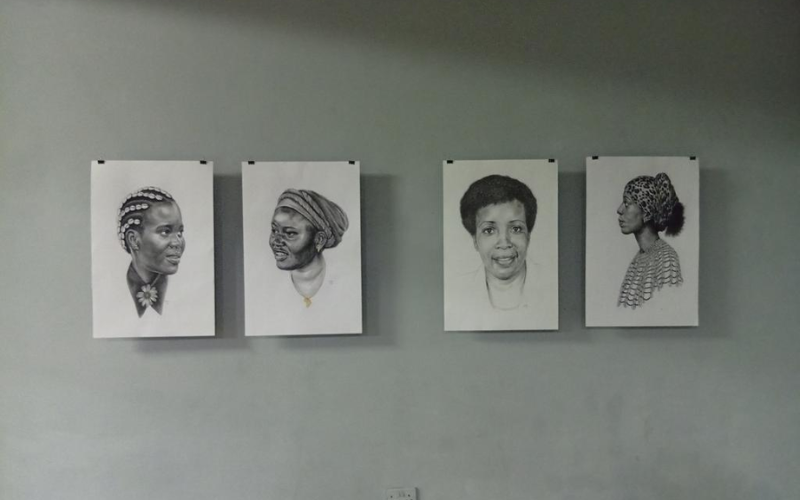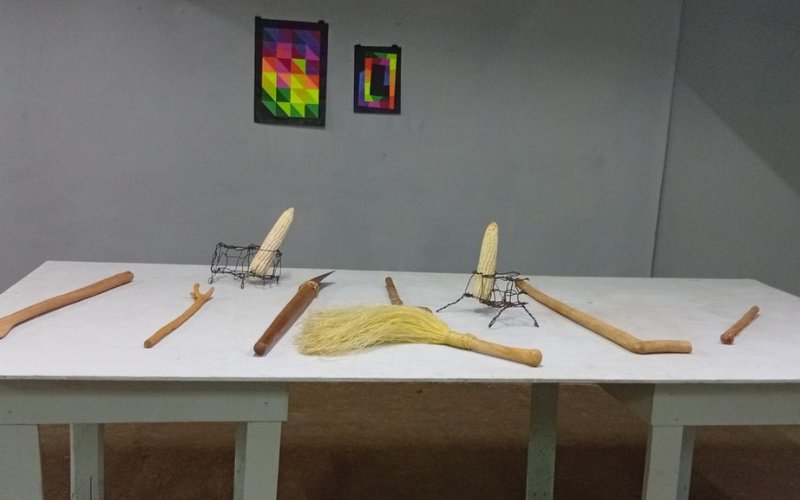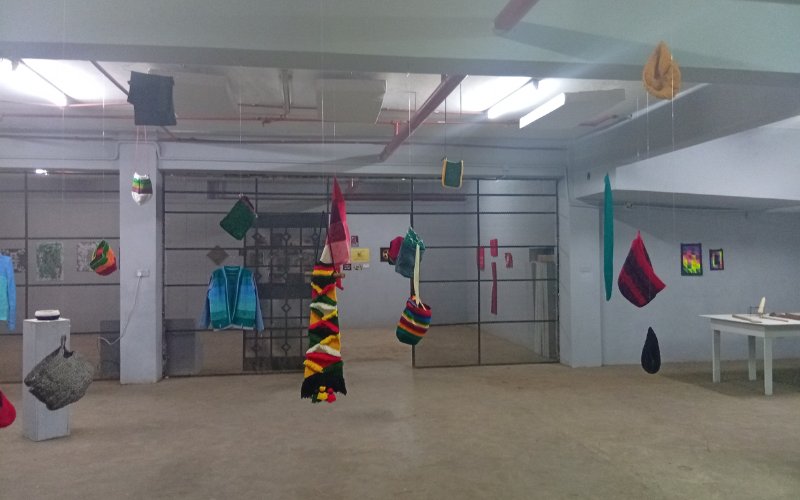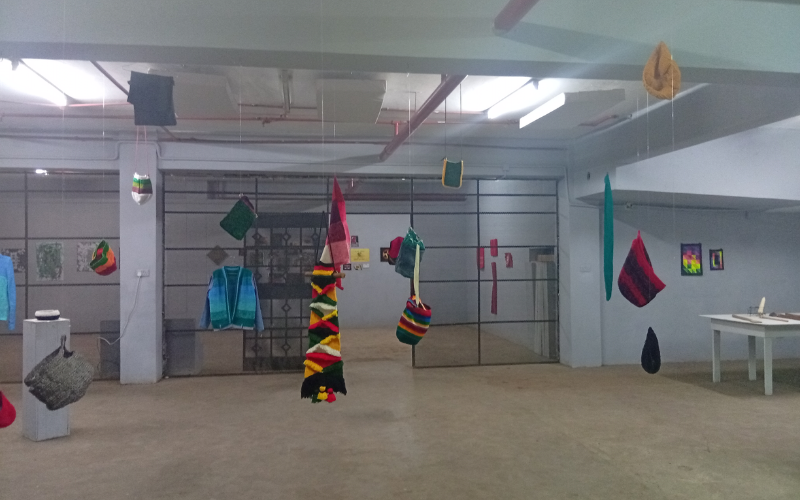Multidisciplinary artist Nduta Kariuki demonstrates her versatility in her debut solo exhibition, Dreamcatcher, which she collaborated on with her late father, Paul Kariuki.
Opened on August 18 at Munyu Space in Nairobi, the exhibition features crocheted bags and clothes, portrait paintings, and nature photographs by Nduta, alongside wooden stools and tools crafted by her father.
Here, Nduta primarily showcases functional art that viewers can touch, feel, and even use.
This approach perfectly aligns with Munyu Space, a venue known for hosting unconventional artworks and exhibitions.
For Nduta, crocheting and embroidery—practices innate to her—are also deeply meditative, making this body of work an intimate expression of self.

At the heart of the show is a wheel-like piece titled Dreamcatcher, a personal symbol of hope and connection.
Nduta incorporated feathers, rosemary plants, dried flowers, and leaves collected from her home.
In fact, across the exhibition, every color and material reflects elements she is personally drawn to or lessons she learned from her father.
“With paintings, I like doing portraits of people I’ve met. I was trying to bear a lot of myself with this exhibition in ways I haven’t before. This is a record of all the kinds of art that I create,” she explains.

Her father’s creations—produced out of necessity before his passing in 2013—have since evolved into valued artworks.
While preparing for this exhibition, Nduta revisited the storeroom at their home and found herself reflecting on how his artistry connects with her own.
She recalled how he would make stools out of necessity, transforming ordinary materials into functional pieces of art, though he never considered himself an artist.
“As I got older, I came to see his artistic side and realised that I am an artist because of him. I wanted to share his vision through this exhibition, which is also, in a way, his first,” she says.
Beyond honoring her father, Nduta hopes the exhibition inspires artists to explore different disciplines.

“I hope they find joy in the intricate works and perhaps be inspired to revisit crafts from the past that have taken a backseat. Functional art can be appreciated and used by anyone; one doesn’t have to be an art enthusiast,” she adds.
Joy Mala, curator of Dreamcatcher, describes the show as a testament to the freedom of artistic practice.
“Many young people who came here felt they had been permitted to explore multiple forms of art. It affirms to them that they can always pick a new creative outlet,” she says.
The exhibition closes on August 25.


